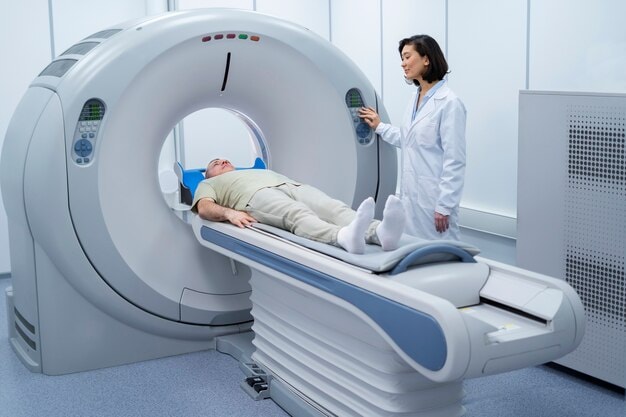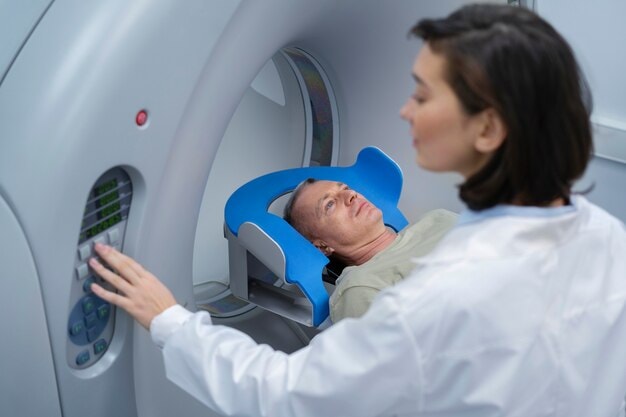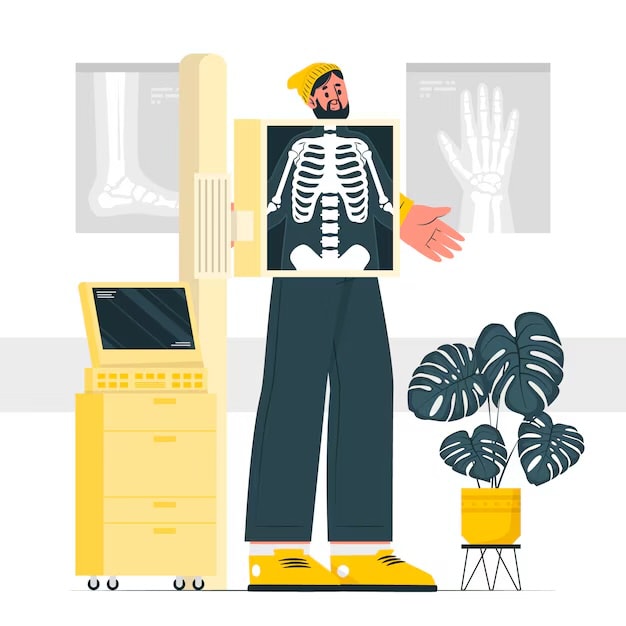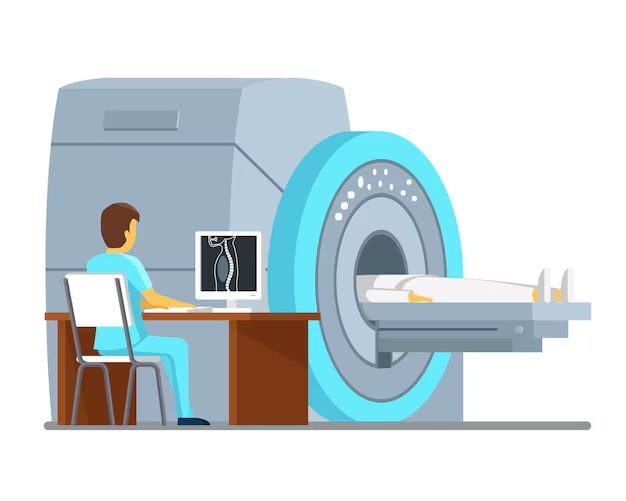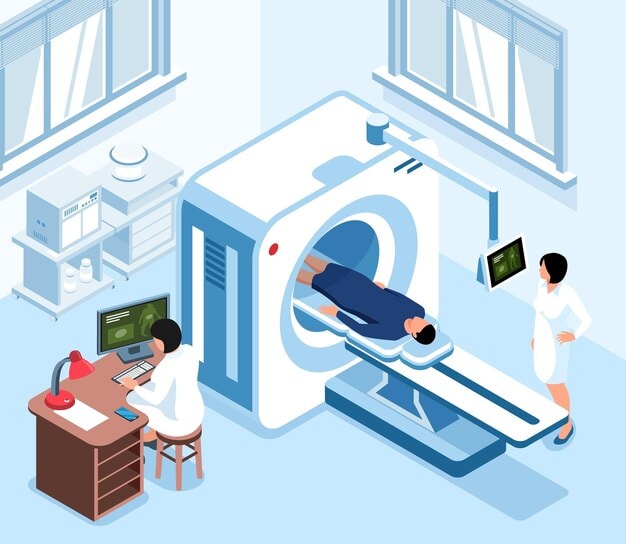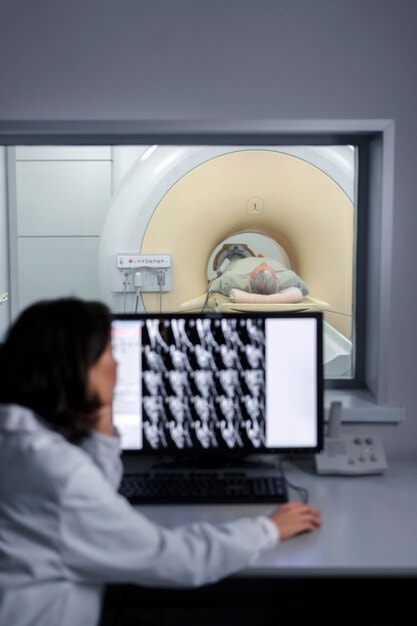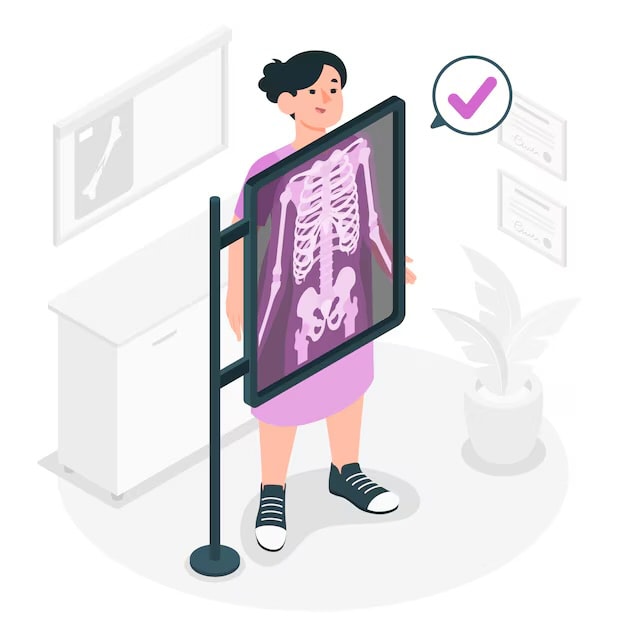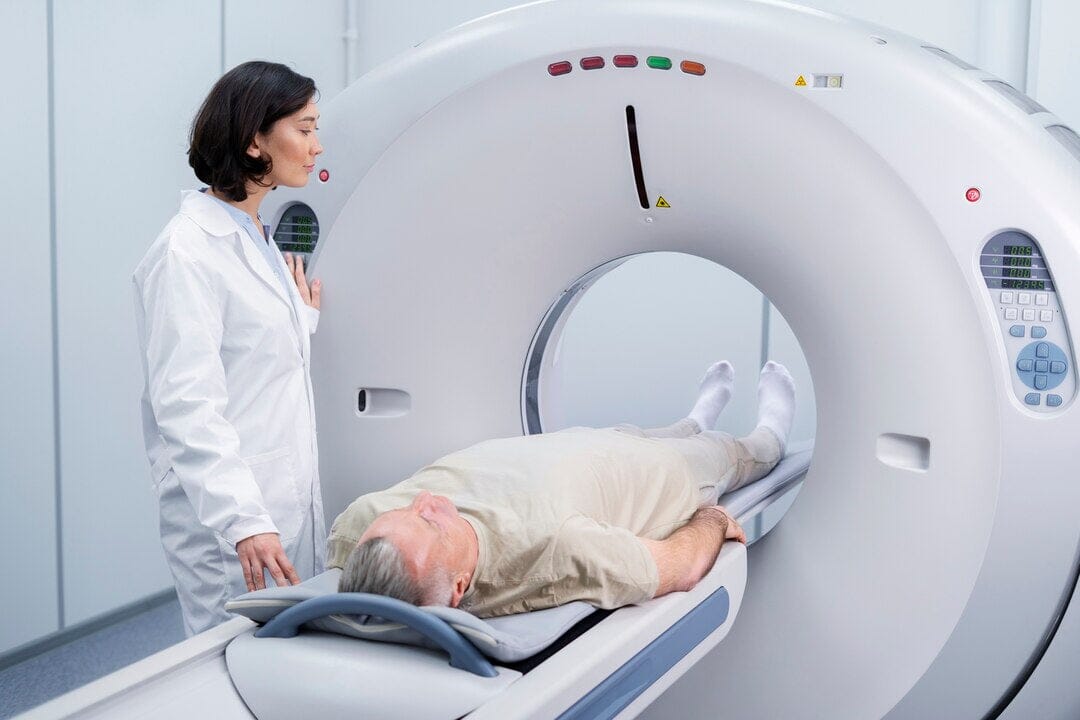
Understanding CT Scan Price: Affordable Options and Key Insights
Time to read 11 min
Time to read 11 min
A CT, or computed tomography, scan is a diagnostic imaging procedure widely used in medicine to provide cross-sectional images of the body.
As a better alternative to an x-ray, this detailed technique offers in-depth views of bones, organs, and blood vessels.
However, CT scan price varies widely depending on various factors, including the location, equipment, and part of the body being scanned.
In this article, we will detail CT scans, their cost, and affordable options that can help you make wise decisions.
A CT scan is an advanced type in imaging involving x-rays along with computer processing to develop excellent images for the structures that can not be seen externally in the human body.
There are conditions starting from minor fractures up to complicated cancers that require and can easily be diagnosed using a CT scan.
• Commonly used to detect conditions such as tumors, blood clots, infections, and internal injuries.
Doctors recommend CT scans for diagnosing and monitoring various medical conditions. The scan is especially beneficial when a detailed examination of internal organs, bones, or blood vessels is needed. Some common reasons to get a CT scan include:
During a CT scan, you'll lie on a motorized table that slides into a doughnut-shaped machine. This machine uses x-rays as it rotates to capture images of your body.
• The process usually takes a few minutes to half an hour.
• A CT scan can be done with or without contrast dye, which helps highlight specific areas of your body for better imaging.
• Your CT scan results are analyzed by a radiologist and forwarded to your doctor.
How long does a CT scan take? This depends on the type of scan and if contrast dye is required.
A CT scan in routine cases may take just a few minutes. However, if it requires contrast dye, the duration will extend to 30–60 minutes.
Other factors which determine the time required are also patient preparation and scanning of that part of the body.
There are various types of CT scans, depending on the part of the body being examined. Common CT scans are:
Used to detect strokes, brain injuries, or tumors.
Provides detailed images of the lungs and heart.
Examines digestive organs, kidneys, and reproductive systems.
Detects spine injuries or disorders.
Focuses on blood vessels.
CT scan cost varies depending on some factors: location, type of scan, and healthcare provider. Let's dig deep into what determines the amount for the CT scan:
1. Body Part The price for the CT scan depends on if it's a head scan, chest scan, or abdomen scan, etc.
2. Type of scan: Contrast dye scans are costly than non-contrast dye scans
3. Location facility: Depending on the scan location whether in a hospital, diagnostic center, or clinic.
4. Technology used: Using up-to-date machines and technology, hence costing more.
5. Health insurance: The insurance covers a vast percentage, thus saving money from your pocket.
A CT scan is likely to range from widely as cost, considering the mentioned factors. For instance, On average Simple CT scans may be up to $300 to $1,500
Scans using contrast dye or on more extensive regions might be as high as $3,000
Cost for outpatient diagnostic centers may also be cheaper as compared to hospital rates.
If you are worried about the cost of CT scan, here are some tips to help you find cheaper options:
Compare prices at different diagnostic centers and hospitals.
Many facilities offer discounts for uninsured or self-paying patients.
If you have health insurance, check whether it covers the CT scan cost.
Some clinics offer low-cost imaging services to low-income patients.
Some Governments help lower the cost in medical scans by offering government sponsored plans.
A CT scan differs from an x-ray as that these work on the same principles involving radiation to create images within the body, but it provides in terms of scope and level.
Procedure gives detailed three-dimensional body images, which can facilitate complex diagnoses.
Provide simple, two-dimensional images, mainly applied to fractures and simple evaluation.
Even though a CT scan is more inclusive, it is relatively pricier than an x-ray.
As with any medical treatment, CT scans carry with them the risk of adverse reactions. The most common issue is the exposure to radiation, but the levels are relatively low and safe for most patients.
Chronic or repeated scanning could potentially raise long-term dangers.
You may have allergic reactions or kidney problems from the dye.
You might feel uncomfortable during the scan if you are claustrophobic.
Although most people are safe for a CT scan, there are exceptions:
Avoid a CT scan unless absolutely necessary as it poses a risk to the fetus.
Avoid radiation exposure for small children unless absolutely necessary for diagnosis.
Patients with kidney problems should avoid contrast dye unless medically required.
Preparation for your CT scan varies depending on the type in scan:
Fasting may be required for a few hours before the procedure.
Minimal preparation is needed.
Wear comfortable clothing and remove any metal objects.
A CT scan has varying prices globally:
United States: $300 to $3,000
India: $50 to $150; a good reason to pursue medical tourism.
Europe: $100 to $1,000, and that depends on the country and the facility.
There is no question that a CT scan holds much value in medical diagnostics. The process is quite accurate and fast, providing insights into how to diagnose and treat critical conditions.
Although CT scans are expensive, their benefits often outweigh the costs. Discuss your issues with your doctor in order to address financial options and alternative imaging techniques, such as an ultrasound x-ray, if needed.
A computed tomography scan, more commonly referred to as a CT scan, is an indispensable diagnostic technique in modern medicine.
It gives unparalleled insight into the human body by showing detailed cross-sectional images of the human body.
Scans are used to determine and track conditions such as cancer, internal injuries, infections, and cardiovascular disease.
Despite its importance, it is often the cost of a CT scan that raises concerns, especially when one is navigating healthcare expenses.
Understanding the factors that drive the price of a CT scan and exploring cost-effective options can help you make smart choices about your medical care.
A CT scan is one of the essential medical procedures between a simple imaging test such as x-rays and a highly complicated diagnosis.
While an x-ray provides two-dimensional views of any part of the body, a CT scan produces clear, three-dimensional views of areas in the body, thereby providing a highly important means of identifying critical health conditions through combining multiple x-rays from various angles.
For instance, CT scans is most useful in the detection of tumors, blood clots, internal bleeding, and fractures. They are also inescapable in surgical guidance and other medical interventions.
The ability to produce images of the internal organs and blood vessels at high resolutions makes CT scans invaluable for diagnosing complex conditions like strokes, lung diseases, and abdominal disorders.
The price for a CT scan is quite diverse due to a number of considerations:
Scans which contain contrast dye or take more extensive body parts usually have higher prices.
Those at the hospitals cost more compared to the ones conducted at the independent diagnostic centers.
In cities, the CT scan is much more expensive as compared to rural and sub-urban areas.
You can cut down your out-of-pocket costs significantly by having the insurance plans cover it.
You can understand these factors and weigh the potential expenses and make cost-effective decisions. The CT scan prices also vary in different countries, but there are some regions that provide a much lower rate without compromising on quality.
If you are concerned about the cost of a CT scan, here are some ways to cut down on expenses:
Research different diagnostic centers and hospitals to compare prices. Many facilities provide transparent pricing information online or over the phone.
Ensure that your health insurance plan includes coverage for CT scans. If you’re unsure, consult your provider for clarification.
Look for clinics that offer subsidized imaging services for low-income patients.
Prices in other countries such as India or Thailand for a CT scan may be lower yet not as low in price with equivalent care.
If uninsured, request the diagnostic center to lower prices or create payment plans.
Having tried some of these choices, you would ensure necessary medical care and be saved financially.
While very valuable, there are also risks and limitations to using CT scans. The biggest drawback is exposure to radiation.
While the dose of one CT scan is relatively low, repeated scanning increases the chances of having long-term problems.
In addition, the contrast dye may cause allergic reactions or even kidney problems in some patients who undergo the procedure.
This is why it is also important to inform your doctor of any pre-existing conditions or allergies before undergoing the scan.
Lastly, while the CT scan provides detailed images, it might not be the first option for diagnosing certain conditions. Other imaging methods, including x-ray ultrasound, would be more appropriate in certain cases.
The question always pops into mind: Is the price for a CT scan really worth it? It mostly depends on your medical condition and the need for such detailed diagnosis.
A CT scan can be life-saving information, especially in critical situations, such as determining a stroke or an internal injury. For routine follow-ups or less severe conditions, however, x-rays will do.
Ultimately, the decision to have a CT scan should be made after consulting with your healthcare provider.
They can guide you on the weighing of benefits against cost and potential risks in order to make the best decision for your health.
Understanding the price of a CT scan, preparation process, and purpose can make a daunting process less intimidating.
The more advanced technology in today's world, the fact that CT scan are able to provide accurate and prompt results regarding the body, stays the same.
You can pursue health care without breaking your budget by looking for economical choices and using insurance or supported programs.
Whether you're finding a CT scan in a local hospital or looking for some medical tourism to make the procedure less expensive, remember that proactive health decisions result in better outcomes.
Armed with knowledge of the cost in a CT, its value, and potential alternatives, you'll be able to go through your diagnostic journey with confidence.
A CT scan, also known as a computed tomography scan, uses x-rays and computer technology to create cross-sectional images of the body. This produces more comprehensive and detailed images than a standard x-ray, which only offers two-dimensional views. CT scan are frequently used for complex diagnoses, such as tumors, blood clots, and internal injuries.
A CT scan costs anywhere between $300 and $3,000, depending on considerations like:
It's possible to cut costs by comparing prices between different health facilities and by utilizing your insurance.
The time for the CT scan depends on the kind of scan:
During a CT scan, you lie on a motorized table that slides into a doughnut-shaped machine. The machine rotates around you, capturing images. The procedure is painless, although you might need to abstain from eating before hand if the contrast dye is utilized.
Yes, there are some risks, including:
Low levels are usually safe, but frequent scans can increase the risk.
Some patients might experience allergic reactions or kidney problems.
Claustrophobic people may experience discomfort during the scan.
Talk to your doctor about any of these concerns before making an appointment for the scan.
To lower the cost of the CT scan, consider the following:
By doing so, you can achieve access to care without overspending.
* Medical Disclaimer - The following information is for educational purposes only. No information provided on this website, including text, graphic, and images, are intended as substitutes for professional medical advice. Please consult with your doctor about specific medical advice pertaining to your condition(s).
